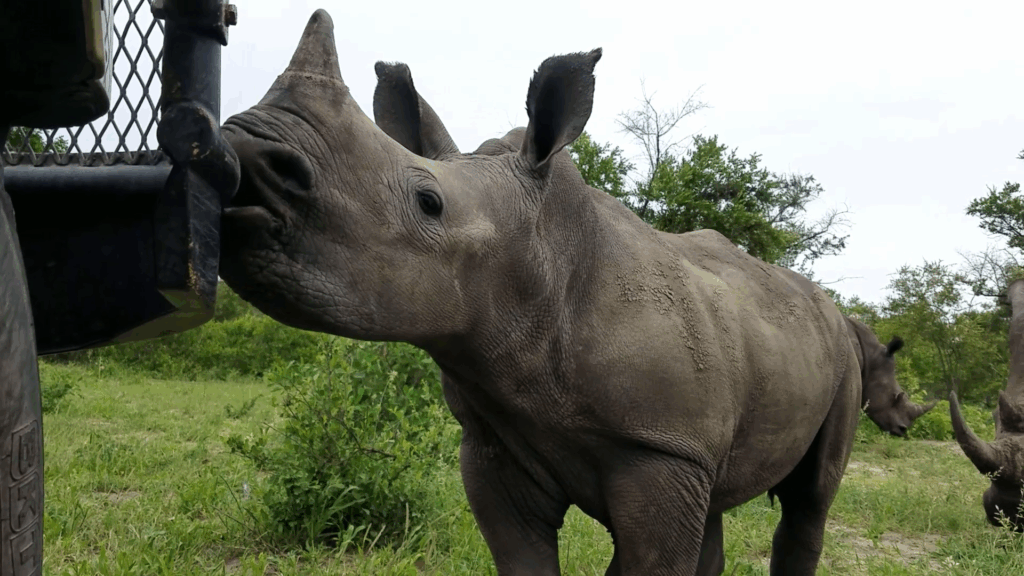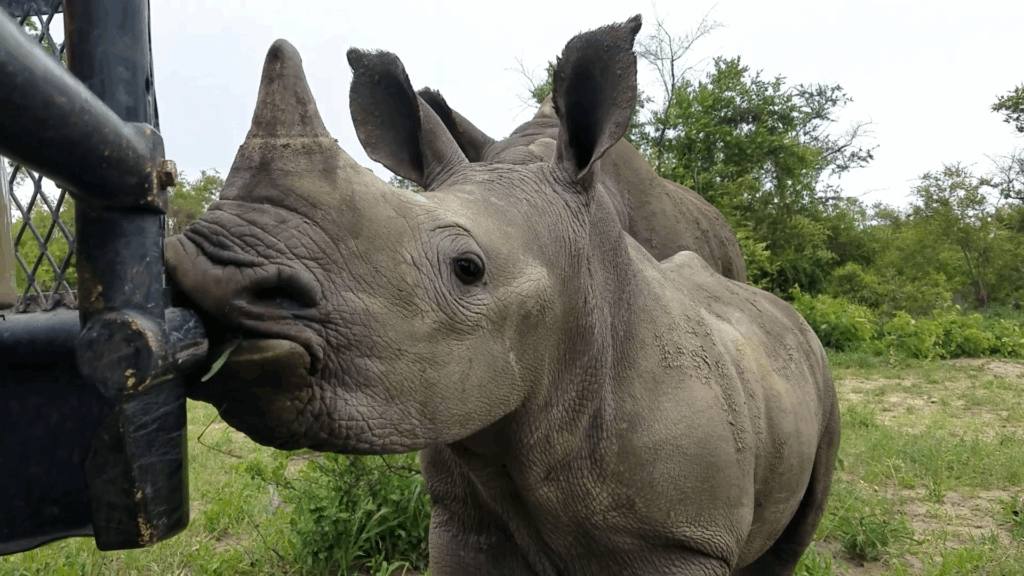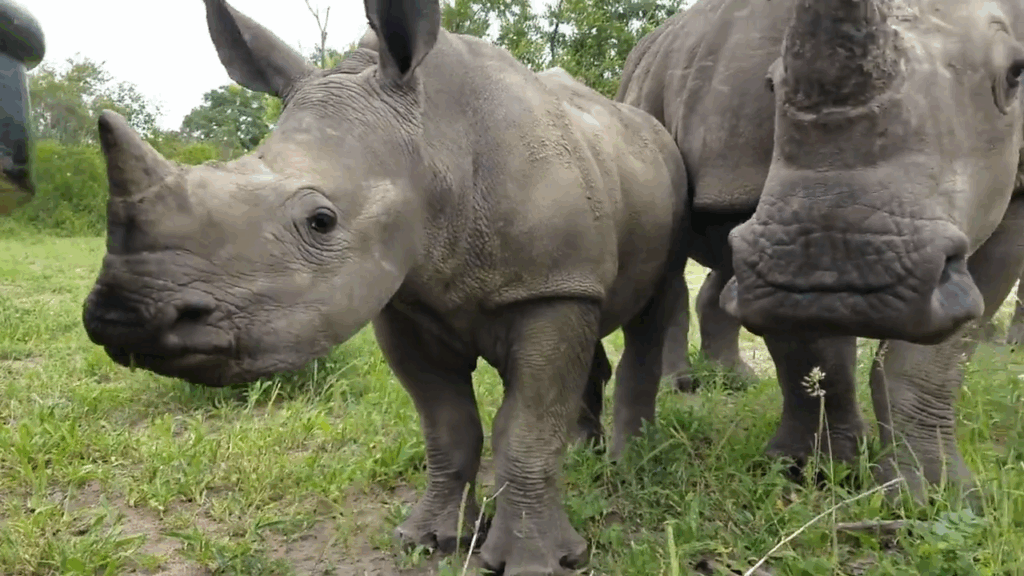Baby rhinos are by nature quite playful, curious little creatures, and this one came up to inspect their safari vehicle, licking and biting the vehicle.

Mother and baby rhino approach safari vehicle
The baby had been grazing in the bushveld alongside his mother. While she had remained quite sedate and kept distance between herself and the vehicle, the small rhino hadn’t been able to contain his curiosity.

Baby rhino approaches vehicle
Noticing the vehicle, the little rhino came right up close to its bumper. It inspected the metal for a moment and then started to lick one of the poles.
This is a little like a small child picking up something from the ground and putting it in their mouth, without knowing what it is. Young animals are curious by nature, and this one wanted to know what the jeep tasted like.
It had been grazing with it mother from the bushes and grass around them, so it possibly reasoned the jeep was also edible.

This young rhino already had a respectable horn and was not a newborn. Baby white rhinos are born without horns. At birth, they appear smooth and hornless, but their horn begins to grow within a few weeks.
Get our Best Sightings as they Come in
The horn is made of keratin, the same substance found in human fingernails and hair, and it continues to grow throughout their lives.

Rhino calf suckles on vehicle
Mother and calf stayed close together while the young rhino appeared to suckle on the metal of the safari vehicle.
Baby white rhinos form a very strong bond with their mothers, who are fiercely protective. The calf stays with its mother for up to three years. It nurses for the first year and then learns how to find food and water.
During this time, the mother will teach the calf essential survival skills, including how to navigate territory and interact with other rhinos. The two often stay close together, and the calf will follow its mother everywhere.

Every now and then, the calf would look up to get a closer look at the vehicle’s occupants. His mother stayed right beside him.
This was a special moment for the spectators who were given a prime spot in the intimate space shared by mother and calf.

Beautiful nature of calf on full display
Calves are quick learners and become increasingly independent as they grow. Much as this one demonstrated, their agility and curiosity make them energetic explorers.
They are often seen trotting around their mothers and testing out their strength. They also enjoy running around, charging at objects, and even engaging in mock fights with other young rhinos.
This play behaviour helps them develop coordination and strength, as well as the social skills they will need as adults.
Sadly, due to poaching and habitat loss, white rhinos are critically endangered. Baby white rhinos born in the wild today are part of an ongoing conservation challenge. Many are born in protected reserves, and each birth is considered a victory for conservationists.
